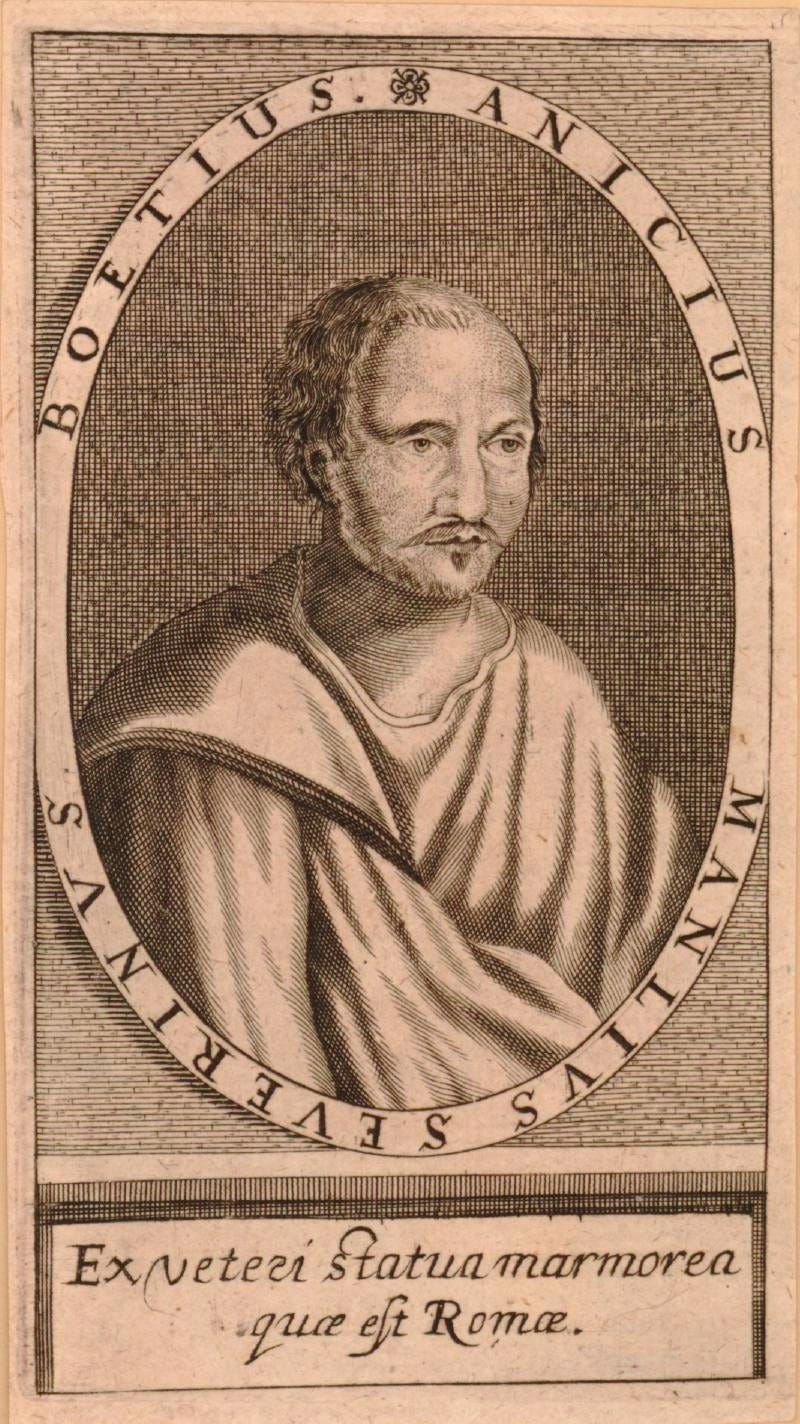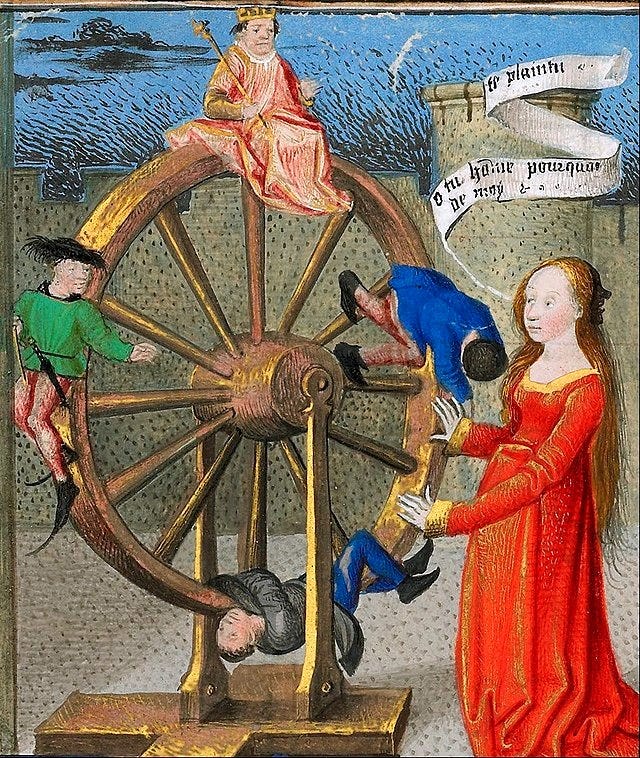A Philosopher’s Guide to Hope—Even on Death Row
How Boethius Found Meaning When Everything Was Taken
Boethius’ Consolation of Philosophy is the ultimate story of hope, written from the depths of despair.
It’s a work of philosophy that Boethius wrote in prison on death row, while unjustly condemned for treason.
It’s here on the brink of torture and death that Boethius asked:
“Is life actually good?”
He asks this question in a world that stripped everything from him, while injustice reigned supreme. In other words, he puts philosophy itself on trial:
“Why should you be good when the wicked prosper?”
Against all odds, Boethius found an answer that didn’t just give him solace, but shaped 1,500 years of Western thought on the true meaning of life.
Here’s Boethius’ Consolation of Philosophy, and its insights on how to discover beauty and meaning, even on death row…
Reminder:
Subscribe to support my mission of restoring Truth, Beauty, Goodness, and God to the heart of the West!
Saving Rome from Chaos
First off, who was Boethius?
He was a Roman statesman, philosopher, and scholar, born in the late 5th century AD — a time when the empire was fractured and fading.
Boethius had a successful career in politics, rising to the highest magistrate’s office in Rome, and he devoted his career to one cause:
Reviving the intellectual heritage that once made Rome great.
He translated the works of ancient Greek philosophers into Latin, preserved the wisdom of statesmen, and argued that the health of the state depended on the pursuit of truth, virtue, and learning.
But at the height of his influence, Fortune’s fickle wheel turned.
In a sudden reversal, Boethius was accused of treason, condemned without a fair trial, and thrown into prison to await execution.
Prison, Death, and Philosophy
In prison, Boethius had lost everything — career, honor, freedom, even the hope of life itself.
His enemies thrived while Rome slid deeper into chaos. By all appearances, his life’s work had ended in failure… yet it’s here, in this pit of despair, that he writes The Consolation of Philosophy.
His aim was simple: write a treatise to console his grief.
He asks himself:
“What good is philosophy? I’ve practiced it my whole life, yet I’ve been conquered by the unjust and the wicked.
Is the good life all a lie?”
Boethius frames his work as a drama, with himself as the protagonist.
The story begins in his prison cell, as he mourns his fate, until an unexpected visitor appears. It’s the angelic Lady Philosophy, but she has not come to rescue him.
Instead, she rebukes him:
“When I saw thee sorrowful, in tears, I straightway knew thee wretched and an exile.
But how far distant that exile I should not know, had not thine own speech revealed it.”
She calls him an exile — not from Rome, but from the “home” of philosophy itself. In grief, he has abandoned its first principles. His sorrow is real, but his loss of faith in philosophy is a failing that must be corrected.
Silenced and humbled, Boethius listens as she begins her work of healing.
Her first lesson is stark:
“If it can be taken away from you, you don’t truly own it.”
Wealth, honors, and freedom are gifts of fortune, not possessions of the soul. Philosophy does not promise good fortune; it teaches love for Truth, which alone can withstand life’s misfortunes.
True and lasting happiness is the spiritual peace that endures any tragedy — even death row.
Such peace is born of virtue, nurtured through good works, contemplation of truth, and love for beautiful things:
Only Truth, Beauty, and Goodness can heal a soul wounded by fortune’s blows.
At this, Boethius’ senses return. Yet this is only the beginning.
Lady Philosophy has not come to comfort him, rather she has come to reveal his ultimate destiny.
This destiny is shared by all humans, and there’s only one path to attain it. The good news is, anyone can reach it, even from the confines of a prison cell, staring down the face of death:
It’s attained by perfecting one single relationship.
Once you understand it, no suffering, loss, or injustice can ever sever you from life’s truest Beauty and Goodness…
Keep reading with a 7-day free trial
Subscribe to Sean Berube to keep reading this post and get 7 days of free access to the full post archives.




